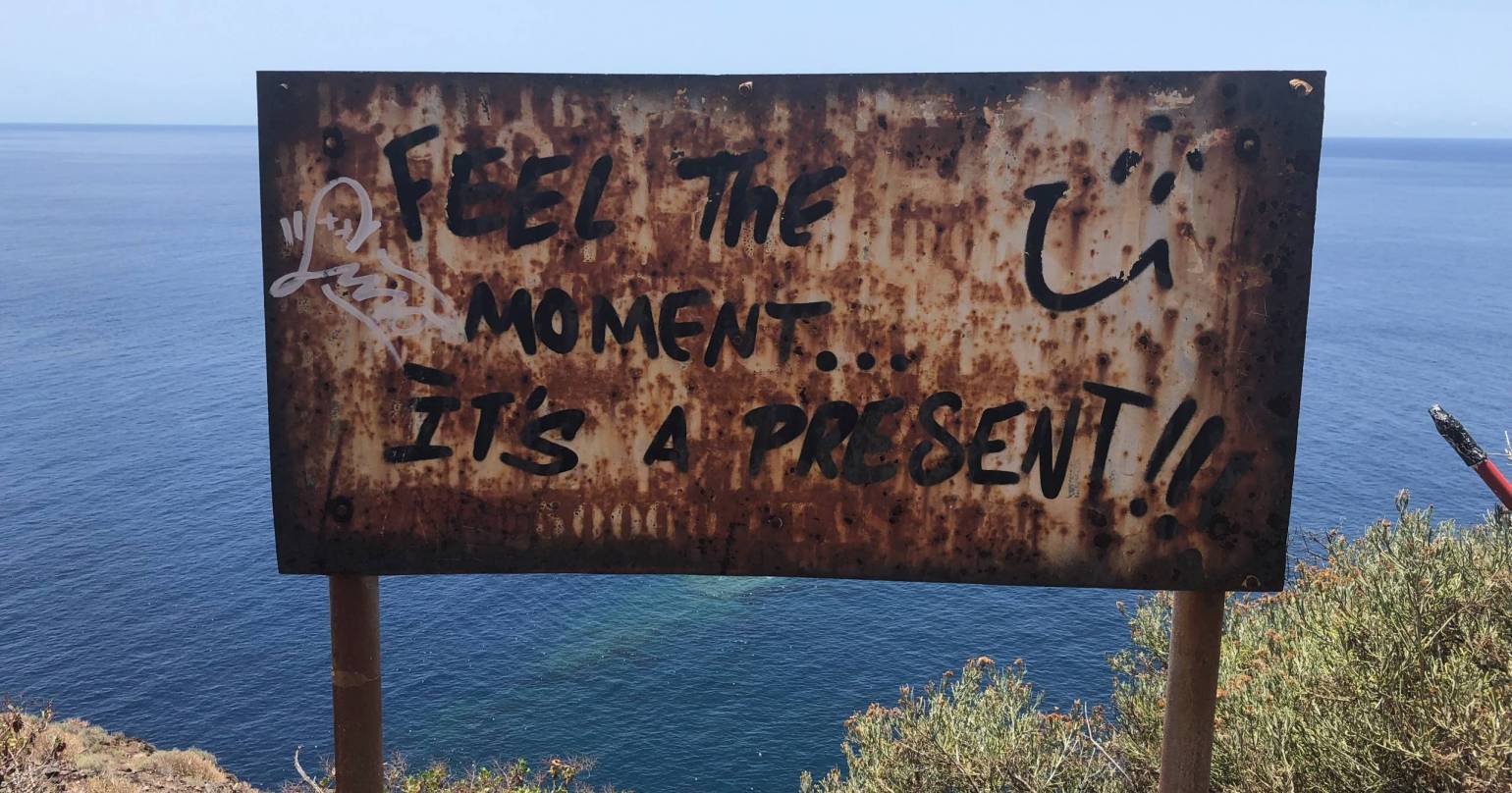Being Present
- Do you find that you’re usually stuck in planning the future?
- Dread the future?
- Entrenched in the past?
- Let past experiences dictate how you live your life now?
If you’ve answered yes to one or more of these questions then the chances are you let very little of the present into your daily life.
I was guilty of all of the above at different times in my life and every now and then I feel them creep back in at times if I feel worried or anxious about new prospects. It’s quite a natural response- a new job for instance comes with excitement, nerves, hopes and feeling like an imposter (What if I can’t do it? What if they don’t like me?)
A new situation promotes a risk assessment in the brain which triggers fight/ flight responses so anxiety is a natural by-product of that risk assessment to enable you to choose how to deal with the perceived threat. If you find yourself stuck in this response for long periods of time then this has become problematic.
- What ifs aren’t real.
- What ifs aren’t true.
- What ifs cause anxiety to cycle and reinforce symptoms such as nausea, headaches, low mood, irritability, anger, palpitations, sweats and butterflies in the stomach.
Being too much in the past means you’ll likely be using past experiences to predict outcomes that are actually unlikely to repeat. It’s a case of making a square peg fit into a round hole- it doesn’t fit, it’s uncomfortable but you’ll force it so you can have a sense of meaning, but you’ve forgotten that it was a past experience. The brain searches for past memories to help us find meaning but as you can see, it isn’t always helpful. You can tackle this by considering:
Is this current situation an exact replica of what happened before?
- No: This is unlikely to happen again.
- Yes: What have I learnt from that experience and how can I apply it going forward to stay safe?
Is fortune-telling the future helpful?
(I’ll say it again- What ifs aren’t real)
Are you basing the proposed outcome on evidence/ facts?
-
- No: it’s not real then
- Yes: what action can I take to stay safe and prevent threats/ problems?
How can you practice staying present?
Grounding techniques can be really helpful to bring you back to the here and now.
Find the links to some of my favourite mediations and breathing exercises at the end of this blog.
Exercise allows your mind to focus on what you are doing right now, not what you were doing 5 years ago or what you might be doing next week.
Reading can be a great way to stimulate imagination, provide a temporary escape or safe haven.
Walking in nature forces you to look at what is around you and pay attention to your environment, thus moving thoughts to the present.
Crafts demand all of your attention and provide a way to produce an outcome linked with enjoyment and a sense of achievement.
Yoga can help you pay attention to both your body and mind
Journaling can be an outlet for any thoughts and emotions that are troubling you, or it can be used simply to note how you feel in any given moment. The act of closing the book / notepad at the end can be a way of moving on from those thoughts. You’ve paid them some attention but they don’t have to colour your mood for the rest of the day. Simply acknowledging how you feel can be a relief in itself.
Take your time, give yourself chance to adapt and get used to one of these first. Have realistic expectations and be compassionate to yourself. If ‘I can’t…’ creeps in consider where that thought is coming from and if it is linked to past experience or future fears, then find something to do to connect to the present.
https://insighttimer.com/tomevans/guided-meditations/be-calm
https://insighttimer.com/davidji
Photo by Knuth Waltenberg on Unsplash

Add Comment